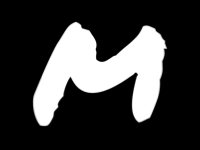Learning trick – Creating your own 'cheatsheet'
The last time I was consciously learning a big, new set of knowledge was in engineering school in university. Back then learning was done through professors and textbooks and not online. The textbook was effectively your single source of knowledge. Everything you needed to know was there, and you found what you needed using the table of contents and the index.
Modern learning is completely different. It’s done online, through dozens of courses, hundreds of websites, YouTube videos, and any number of other random places. There’s no single source of knowledge anymore.
When I started learning to program I didn’t have a plan. I searched, “how hard is iOS programming to learn,” found a YouTube video, and started watching. Right from that first video there was more than I could remember, so I took screenshots and put them in a document I call my "Cheatsheet" and included the video link so I could come back to it. As I watched more videos, I took more screenshots and put them in the Cheatsheet; when I found a clever code snippet I put it in; when I found useful documentation I dropped the link in. Over time, the cheatsheet grew until I realized it had become my source of knowledge — my textbook.
I still add to it every day and it's easily been the biggest factor in how fast I've been able to learn. It does three important things:
Removes friction — Momentum is everything in the early stages of learning. Every time you have to stop and find information you lose momentum. It's frustrating spending 30 minutes scrubbing through videos or scrolling through Google to find information you you've already seen. With the cheatsheet, you just ⌘-F and find what you need in seconds.
It forces you to explain — Writing something in your own words requires a different level of understanding than simply following someone else’s logic in a video. Words are just thoughts in organized form and the cheatsheet forces you to do that organization. You are effectively explaining it to yourself for yourself.
Creates a library of treasures — As you learn you come across useful examples, tips and tricks, inspirations, etc. Putting them in one place makes them available and, over time, it becomes a library of things particularly useful to you.
It's been fascinating to deliberately learn something complicated as an adult. It really highlights how much learning depends on the person, time, and place. I can't say that I actually had a plan for learning in university, it just happened by accident thanks to the structure provided by school. Today, without the structure, I’ve had to provide it myself, which is more effort, but also feels more personal and effective.
